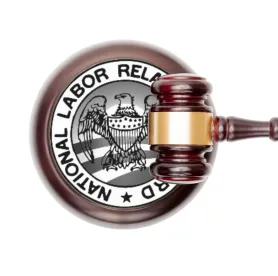On August 9, 2019, the National Labor Relations Board (“NLRB” or “Board”) issued the first of an anticipated sequence of regulations addressing certain union election procedures. The proposed rule, published in the Federal Register, proposes modifying three Board policies governing election processes, including:
-
The process for adjudicating “blocking charges”;
-
The voluntary recognition bar; and
-
Presumed collective bargaining relationships in the construction industry.
Board Chairman John Ring, Member Marvin Kaplan and Member Bill Emanuel voted to approve the proposed rule for publication, while Member Lauren McFerran dissented.
The proposed rule first addresses the Board’s policy on blocking charges, which are allegations that a party to a union election unlawfully coerced workers. Because blocking charges ultimately delay elections pending the resolution of Board proceedings, the proposed rule would replace the current policy with a “vote-and-impound system,” in which the election would still proceed, and the Board would seize ballots cast in an election during the pendency of the unfair labor practice charge.
The proposed rule further addresses the Board’s voluntary recognition bar standard, which currently prohibits challenges to whether a union has majority support to proceed with an election for a “reasonable period of time” (interpreted to be six months to a year) after an employer voluntarily recognizes a union. The proposed rule would shorten the voluntary recognition bar to 45 days.
Finally, the proposed rule would heighten the evidentiary standard for a union that wishes to demonstrate a presumed collective bargaining relationship in the construction industry without a union vote pursuant to Section 8(f). Specifically, the proposed rule would require a union to present “extrinsic evidence” that its recognition “was based on a contemporaneous showing of majority employee support,” such as a petition or signed authorization cards.
In dissent, Member McFerran opposed the proposed rulemaking, writing that the majority’s proposal “fails to meet even minimal standards of reasoned decision-making” that must be “fundamentally reassess[ed].”
While still subject to notice-and-comment requirements, the proposed changes are good news to employers. Employers with questions regarding the proposed rule, or union election proceedings generally, should consult with competent counsel.Stay tuned to Polsinelli at Work for further updates.




 />i
/>i

